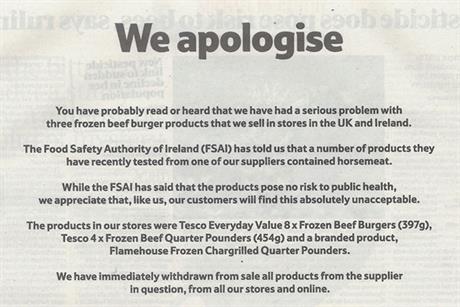Irish Banks to be urged on priority to deal with mortgage arrears problems
Taoiseach Enda Kenny and Central Bank governor Patrick Honohan have each spoken in recent days about their frustration at the banks? failure to deal with the arrears problem.
The Government and the Central Bank are discussing moves to force the banks to tackle their mortgage arrears as part of a new push to overcome the personal debt crisis.
The aim is to help tens of thousands of homeowners who cannot repay their mortgages to enter arrangements with their banks to restructure the debt.
A ?split-mortgage? procedure would be used, with clients retaining responsibility for the portion of the loan they can reasonably repay, while the portion they cannot repay is ?warehoused? for settlement later.
The latest official figures show that 135,628 residential mortgages were in arrears at the end of September 2012, 86,146 of them for more than 90 days.
Following the promissory notes deal last week, the mortgage question is moving to the top of the Government?s economic agenda, alongside the Croke Park talks.
Amid mounting frustration in the Coalition and the Central Bank at the failure of the banks to confront the problem, steps to compel the lenders to take action are under detailed consideration.
Taoiseach Enda Kenny and Central Bank governor Patrick Honohan have each spoken in recent days about their frustration at the banks? failure to deal with the arrears problem.
Their interventions reflect the view that the banks? failure to confront the problem is a big impediment to their own recovery and to economic recovery generally.
This is seen as an issue for all lenders but the Government has greatest leverage over the two pillar banks, the State-owned Allied Irish Banks and the State-backed Bank of Ireland.
Absorb losses
A new drive to make rapid inroads into the problem could lead to banks being compelled by the financial regulator to quickly absorb losses on loans that are in arrears.
A new drive to make rapid inroads into the problem could lead to banks being compelled by the financial regulator to quickly absorb losses on loans that are in arrears.
This would lead banks away from the present system in which they can make general provisions for mortgage losses without actually recognising such losses in their accounts.
It is only by recognising the losses that the loans can be restructured to facilitate the ?split-mortgage? arrangement.
This procedure is designed to avoid blanket debt forgiveness. The capacity of the client to repay the ?warehoused? portion of the loan would remain under regular review in line with the client?s income and property valuations.
Also in the mix to incentivise banks are measures to prevent them from reducing future corporate tax payments by offsetting tax liabilities against financial losses in the past.
Each of the banks would also be obliged to adopt a common target for the settlement of discussions with mortgage holders in arrears who co-operate fully with their lender.
24,000 volunteers clean up after meteor explosion in Russia
An army of 24,000 workers and volunteers was engaged in a giant clean-up operation on Sunday after a meteor exploded over Chelyabinsk in Russia sending a shock wave ripping through the city.
The chunk of cosmic debris disintegrated as it hit the Earth’s atmosphere on Friday morning, sending a sonic boom that smashed up to two million square feet of glass, ripped doors and window frames from their hinges and toppled a factory wall.
Around 1,200 people were hurt by flying shards and debris, although there were no deaths or serious injuries. Twelve adults and three children remained in hospital on Sunday.
There was relief over the weekend in Russia that the meteoroid – which weighed 10,000 tons according to NASA – had not caused greater harm to residents of the Urals city, which has a population of 1.1 million.
Mikhail Yurevich, the region’s governor, said that February 15 – the day the space object exploded overhead – “became Chelyabinsk region’s second birthday”.
“God steered the threat away from us,” he added. “If the meteoroid had been a bit bigger then there could have been a real tragedy. Everyone is alive, the casualties are getting better, the region is returning to its usual rhythm of life.” It remained unclear on Sunday whether any fragments of the meteoroid actually hit the ground. Divers were sent through a 20ft-wide hole in the ice at a lake near Chebarkul, 50 miles west of Chelyabinsk, where one chunk was thought to have fallen. However, emergency officials said nothing had been found, and radiation levels in the water were normal.
Supplies of glass were running low in some areas as state-organised glaziers worked non-stop to repair windows – a matter of urgency with night-time temperatures falling to -20C. A law enforcement source said that some residents had even tried to break undamaged windows in the hope of receiving better “European standard” replacements.
Dunne’s Stores Drogheda fined for selling alcohol to a 15 year old girl


A major branch of Dunne’s Stores in Drogheda is to be closed for four days by court order next month after being convicted of selling alcohol to an underage person.
Judge Alan Mitchell fined the company €1,500 and ordered the West Street store to close in 30 days’ time, when he recorded the conviction at Drogheda District Court yesterday.
A girl who was 15 years old on October 5th last gave evidence of having bought four bottles of Smirnoff Ice in an operation supervised by plainclothes gardaí.
She said she was not asked for her age or for identification when making the purchase. The court was told that the sales assistant was dismissed from her job.
Judge Mitchell said that an aggravating factor in the case was that a duty manager was standing beside the assistant when the sale was being made and did not intervene.
Dorothy Collins said that Dunnes Stores had an abhorrence of underage persons being sold alcohol and would not tolerate such action on the part of staff.
Judge Mitchell drew attention to an RTÉ programme on attitudes to alcohol, presented by Des Bishop. “Sometimes,” he said, “it now seems that the whole social fabric of the country operates around the consumption of alcohol.”
Tesco has taken out advertisements in the national press today in an attempt to reassure customers over the horse meat scandal.
The supermarket said it is reviewing its approach to its supply chain and building a traceability system including DNA testing.
The Department of Agriculture’s investigation into the contaminations are now focused on a cold store in Naas.
Agriculture Minister Simon Coveney said QK Cold Stores has informed the department that frozen beef trimmings imported from Poland, were tested by them and some showed positive for horse DNA.
European Union governments have ordered an EU-wide programme of DNA tests on beef products, to assess the scale of the horse meat scandal.
TESCO TAKES OUT PRESS ADS TO REASSURE CUSTOMERS


TESCO HAS TAKEN OUT ADVERTISEMENTS IN THE NATIONAL PRESS TODAY IN AN ATTEMPT TO REASSURE CUSTOMERS OVER THE HORSE MEAT SCANDAL.
The supermarket said it is reviewing its approach to its supply chain and building a traceability system including DNA testing.
The Department of Agriculture”s investigation into the contaminations are now focused on a cold store in Naas.
Agriculture Minister Simon Coveney said QK Cold Stores has informed the department that frozen beef trimmings imported from Poland, were tested by them and some showed positive for horse DNA.
European Union governments have ordered an EU-wide programme of DNA tests on beef products, to assess the scale of the horse meat scandal.
Help to save a life: give an organ
Every five minutes, another name is added to the organ transplant waiting list. This has caused a large gap between the donors and the wait-listed patients.
The ‘Give Life Through Love’ project has increased public understanding about the Organ Donation Center (ODC) under the Thai Red Cross Society, and a lot of misconceptions about donating the organs have been cleared up.
People who’ve considered donating their organs but have not had a chance to do so were provided with full details of the whole process. The details gave them a different insight about organ donating in a positive way.
The project has implemented different activities and there have now been nearly 100 donor cards filled out.
The project runs from December 2012 to February 2013. It aims to educate and persuade more people to register as a donor and reduce their fear about organ donating via social media such as Facebook and Instagram.
At Chamchuri Square, passers-by were told about organ donation. Subjects such as transplantation, brain death, and experience of the recipients who have been through the transplantation process were shared with the public.
Every week an interview clip with a doctor is uploaded via Facebook and YouTube. These clips share facts about organ donation, experiences doctors have had concerning organ donation and to clear any misconceptions the public has regarding donating.
Other activities included a slogan contest for ODC. Famous celebrities in Thailand were given the project’s T-shirt to wear and upload on their Instagram under the Celeb-stagram activity to reach young adults.
This project has been created by students from Assumption University, Albert Laurence School of Communication Arts in the Public Relations Department in cooperation with ODC.
Organ donation is a great merit and is highly praised. Keeping that in mind, the projects also aim to get Thai people to sign the donor card and donate their organs to help save a life. If you would like to show your support you can start by following “Give Life Through Love” page on Facebook.
Scientists developing natural superglue from mussels


Researchers are developing a natural ‘superglue’ from the kind of adhesive mussels use to cling to the water’s edge.
Researchers are developing a kind of natural superglue based on the powerful adhesives that mussels use to cling to rocks at the water’s edge.
They believe it could do service in human medicine closing up wounds and in cancer therapy, and unlike almost all synthetic adhesives the mussel glue works even in the wet.
Mussels attach themselves to surfaces by thin but amazingly strong threads, said Prof Emily Carrington of the University of Washington”, Friday Harbor, Washington state. They cling successfully in shallow intertidal waters where waves exert tremendous forces. She refers to these threads as nature’s bungee cords and has studied them for 20 years, learning what it is that makes them so tough, she said during a session at the ongoing American Association for the Advancement of Science meeting in Boston. Each strand is only three to 10 times the width of a human hair.
Prof Phillip Messersmith of Northwestern University in Illinois described how the ability of the adhesive to stick even when wet was one of its most valuable characteristics. “Man-made adhesives don’t do that very well,” he said at the meeting. In a medical context virtually all of the surfaces where it might be used are wet.
His group is involved in pre-clinical animal trials to confirm the mussel adhesive works. Efforts were also underway to develop a synthetic version of the glue, something that was almost essential if the product was to be used in human medicine.
The mussels use 40 to 100 threads to attach to rocks, walls and other mussels and they must renew them regularly, Prof Carrington said. They last about two months in winter but just two to four weeks during summer because of the warmer waters.
The research was revealed at the annual American Association for the Advancement of Science (AAAS) meeting in Boston.






No comments:
Post a Comment